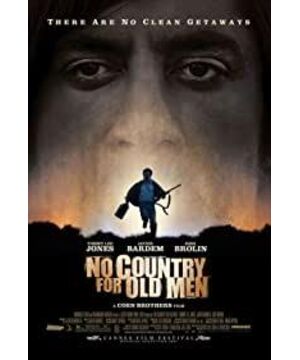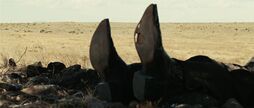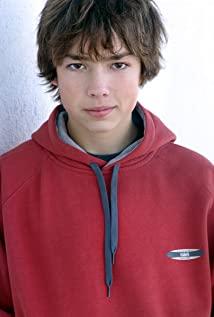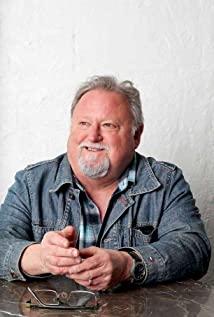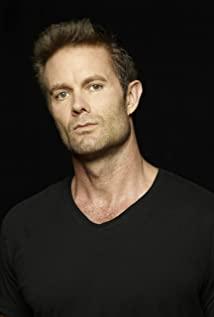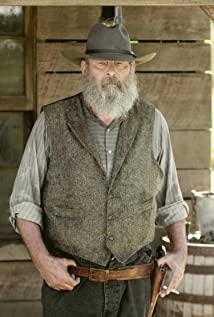What are we used to? What we are used to is like "North by Northwest", in a chase, the bad guy chases the good guy, but the good guy finally escapes, and the bad guy gets retribution. Even if the hero is killed in "This Killer Is Not Too Cold", it is still emotionally and morally superior. But in "No Country for Old Men", the mad demon Anton not only got away with it in the end, but also probably got the huge sum of money. In addition, it is very unclear whether the chased Moss is a good person or not. In the desert before the film begins, he holds a long gun and finds a group of people who have been robbed and killed. He showed no mercy to the only survivors, just took their guns and the box of money that kept him alive. When he returned home, Moss couldn't sleep. The conscience of ordinary people kept him from letting go of the victims in the desert. So, he carried a bucket of water and returned to the old place in the dark night. The survivors are dead, and Morse's momentary kindness has led to lifelong woes. For that box of money, he has been desperate since then. Is he a good man? Is he on the right side? Maybe we shouldn't think that way. He is just an ordinary person, with the greed and indifference of ordinary people, as well as the soft-hearted and kindness of ordinary people. He found the money, and he just wanted to make his and his wife's life better, but unfortunately the money he found was too much, too dark, and too complicated.
What are we used to? We are also used to the fact that in a chase, the story ends with which side wins. At the end of the intense pursuit along the way, our expectations will be determined in the final duel and slaughter. However, "No Country For Old Men" doesn't give you this kind of old-fashioned pleasure. It has a wonderful retraction and relaxation in the rhythm. Every time the suspense of the door to the door, every time the gun is raised and dropped, and every decision to kill or not kill, it makes our vision and nerves gluttonous. But just as we were enjoying this hearty advance and retreat, Moss died suddenly, and his death was extremely chaotic and abrupt. We followed the old police officer's footsteps into the house, only to see his body lying in a pool of blood. He tried his best to avoid the killer Anton, but died in a sudden Mexican melee. No fighting, no gladiatorial fighting, not even a painful struggle after falling to the ground... nothing. Some are just a cold corpse, a cold ending. One of the protagonists just died like this? Yes, just like that, even if there is still nearly a third of the film left unfinished. It is not obvious whether the box full of dollars fell into the enemy's hands or not. Anton, who was not subdued, did not look complacent, but was hit by a car accident without warning and limped. How can a fast-paced chase film suddenly rush off the track and end in a hurry? If it doesn't want us to see justice triumph, it should at least see sin triumph. Otherwise, what are we doing for two hours in awe?
Thinking about it carefully, this is not the director's hasty, but the director's calmness. He challenges our habitual reliance on genre films with such finishing touches. He makes us truly confront the cruelty of life, the cruelty of sin, the cruelty of violence. He wakes us up from that comfortable humanitarian fantasy: Open your eyes and see that there are such bad people in the world, so bad they are utterly bad, so unreasonable, so bad that you will never be able to do anything about them. There really is such a death in the world, a death without a head, a death that is unclear, a death that makes you unwilling. We hope too much that the movie gives a little hope and comfort. But don't always think that the bad guy must have a conscience that deserves sympathy; don't always think that the villain's murder is always traumatized by the great misfortune in childhood; don't always think that the murderer will definitely at some tender moment The knot that had been hidden for many years was opened, and he put down the butcher knife and became a Buddha on the spot.
We can expect the world to be good, but please don't be foolish enough to refuse to face up to sheer ugliness. We should keep an inch of our dreams out of reality, but please don't be fooled into believing that a single ray of sunshine is enough to penetrate all hell. The earth always revolves around the sun, but remember that half the world is always asleep in the dark.
View more about No Country for Old Men reviews


